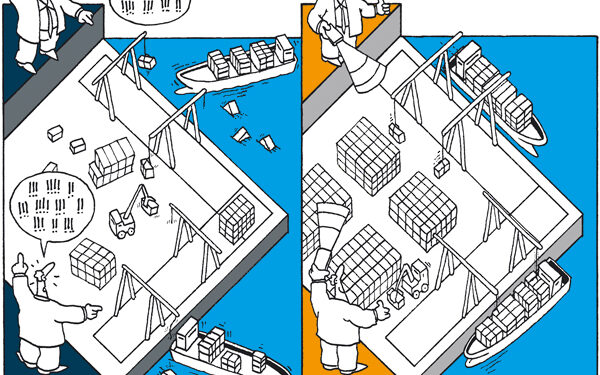SALOMO
Despite increasing availability of information throughout the supply chains, critical hubs in our infrastructure struggle to efficiently plan an optimal use of resources and an efficient and flexible throughput of cargo. Higher volumes, larger transportation sizes, and dynamics in the sea and hinterland connections increase the difficulty of planning and effective decision making.
There is a lack of skills and tools to establish a shared situational awareness, a lack of insight in implications of decisions and a safe and effective training environment. SALOMO works to develop and enhance the understanding of situational awareness, develop and test tools and a training suite for planners and decision makers to make their planning based on a more holistic shared situational awareness and in a more collaborative fashion.
The SALOMO project aims to empower the terminals in the Port of Rotterdam and their hinterland connections by facilitating better decisions and planning through increased situational awareness as well as better trained staff able to deal with dynamic circumstances. Modern supply chains become longer and more complex due to increasing globalization, labor off shoring, and growth.
Longer, complex supply chains are much more vulnerable to disturbances, which resonate throughout the network and make planning more difficult. Robust and flexible hubs which are efficiently connected to the hinterland are therefore crucial for The Netherlands. The focus of the SALOMO project is to address challenges of uncertainty, variation, increasing demands for performance, and an improved degree of quality. SALOMO will develop and test, novel visual,
real-time decision support tools that will be combined with training to empower planners to collaborate more effectively. These decision support tools and training tools will tested at the participating container terminals in the Port of Rotterdam, in education and in other logistic supply chain hubs.
The project focuses on eight innovations (uncertainty handling, real-time planning, cross-partner collaboration, information visualization, intelligent decision support, probabilistic forecasting, mobile data input and output, and virtual reality training). Around the tools we will develop micro-games to transfer best practices in planning and decision support base on collaboration and shared situational awareness.




